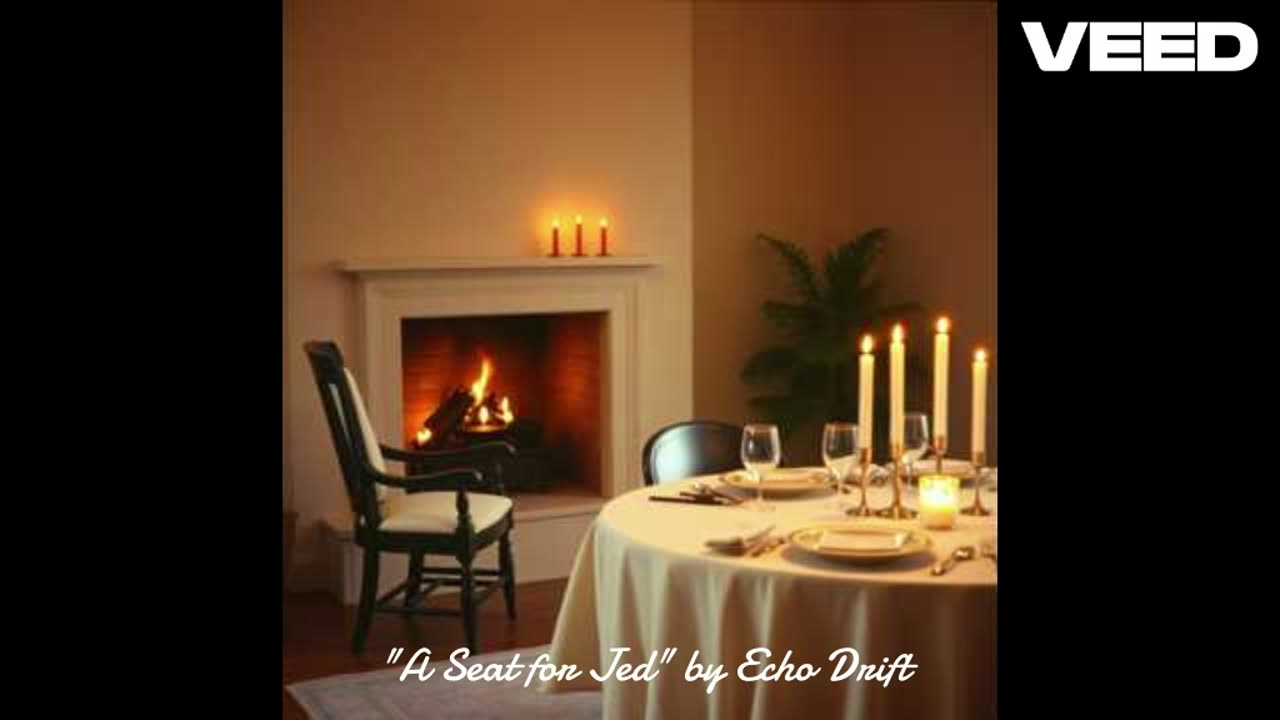Premium Only Content

"A Seat for Jed" by Echo Drift
"A Seat for Jed" by Echo Drift, with lyrics by Samuel E. Burns, is a poignant and deeply emotional song that explores the complexities of loss, memory, and familial love. The song's lyrics weave a delicate narrative about a family grappling with the absence of a loved one, "Jed," likely a brother or son, who is no longer physically present but is forever etched into the fabric of their lives.
From the first verse, the imagery of a cold, still night and trees bound by ice sets a somber, reflective tone. The song beautifully contrasts the warmth of home and family with the emptiness that remains after Jed's departure. The mention of the "empty chair" in the opening lines instantly draws the listener into the family's grief, where the absence of a loved one is as palpable as any physical presence.
One of the song's most touching moments comes through the portrayal of the parents' responses to loss. The mother, despite her tremors, sets a place for Jed at the dinner table, a subtle but powerful act of holding onto hope. The father's steady voice, acknowledging the sorrow and yet finding grace in it, speaks to the resilience of the human spirit in the face of unspeakable pain. This balance of vulnerability and strength in the face of loss gives the song its emotional depth.
The chorus, where the family repeatedly asks, "Oh Jed, where have you gone?" is a raw expression of grief. The repetition of "though the pain is far too loud" encapsulates the conflict between the love and memories they continue to hold on to, and the sharp, overwhelming ache of absence. It’s a lyrical reminder that grief, while painful, doesn’t fade with time—it evolves, becoming part of the fabric of those left behind.
The song is also a testament to memory's power to preserve. The image of the "empty space" at the dinner table, juxtaposed with the warm laughter around it, resonates with anyone who has experienced a loss during a holiday or family gathering. That empty chair becomes a symbol of both absence and presence—Jed may no longer sit in it, but his memory will always fill that space.
The song ends on a hopeful note, with the family finding peace in the knowledge that Jed's spirit will forever be present at the table, symbolized by the carved name. The message is clear: while physical loss is painful, the memory of a loved one can never truly fade as long as they are kept alive in the hearts and minds of those who remain.
Musically, the song's arrangement complements the introspective lyrics with a somber, reflective tone, perhaps carried by a soft piano or acoustic guitar to match the lyrical intimacy. The slow build throughout the song mirrors the gradual acceptance of grief and the bittersweet hope that remains.
In conclusion, "A Seat for Jed" is a hauntingly beautiful meditation on loss, love, and the unbreakable bond of family. The lyrical strength and emotional weight of the song make it not only a tribute to a lost loved one but also a universal reflection on how we navigate absence and keep those we've lost close, even when they are no longer physically with us.
-
 3:19
3:19
New Wave Music
1 day agoPatches by Echo Drift
141 -
 26:17
26:17
The Brett Cooper Show
1 day agoWhy Trans Activists Are Attacking This Gym Owner | Episode 14
75K69 -
 42:04
42:04
Film Threat
17 hours agoSNOW WHITE EARLY REACTIONS! | Film Threat After Dark
33.2K5 -
 2:57:45
2:57:45
GoodLawgic
6 hours agoThe Following Program: Day 57 Recap: JF Files Realeased; Russo-Ukrainian Cease Fire?
20.4K8 -
 2:42:22
2:42:22
Badlands Media
22 hours agoEye of the Storm Ep. 240
103K30 -
 8:15:45
8:15:45
MyronGainesX
1 day ago $39.06 earnedJFK Files Exposed With Cory Hughes! Israel Ends Ceasefire!
97.3K17 -
 1:19:34
1:19:34
Awaken With JP
16 hours agoJFK Files FINALLY Released - LIES Ep 83
92.7K68 -
 22:41
22:41
Stephen Gardner
9 hours ago🔥I Can't BELIEVE What JUST HAPPENED to Trump!
63.1K154 -
 2:37:35
2:37:35
TimcastIRL
9 hours agoJFK FILES RELEASED, Shocking Documents Released By Trump DROPPED w/Amber Duke | Timcast IRL
239K179 -
 8:00:03
8:00:03
SpartakusLIVE
13 hours agoReturn to VERDANSK w/ StoneMountain64, IcemanIsaac, and Huskerrs
86.6K3